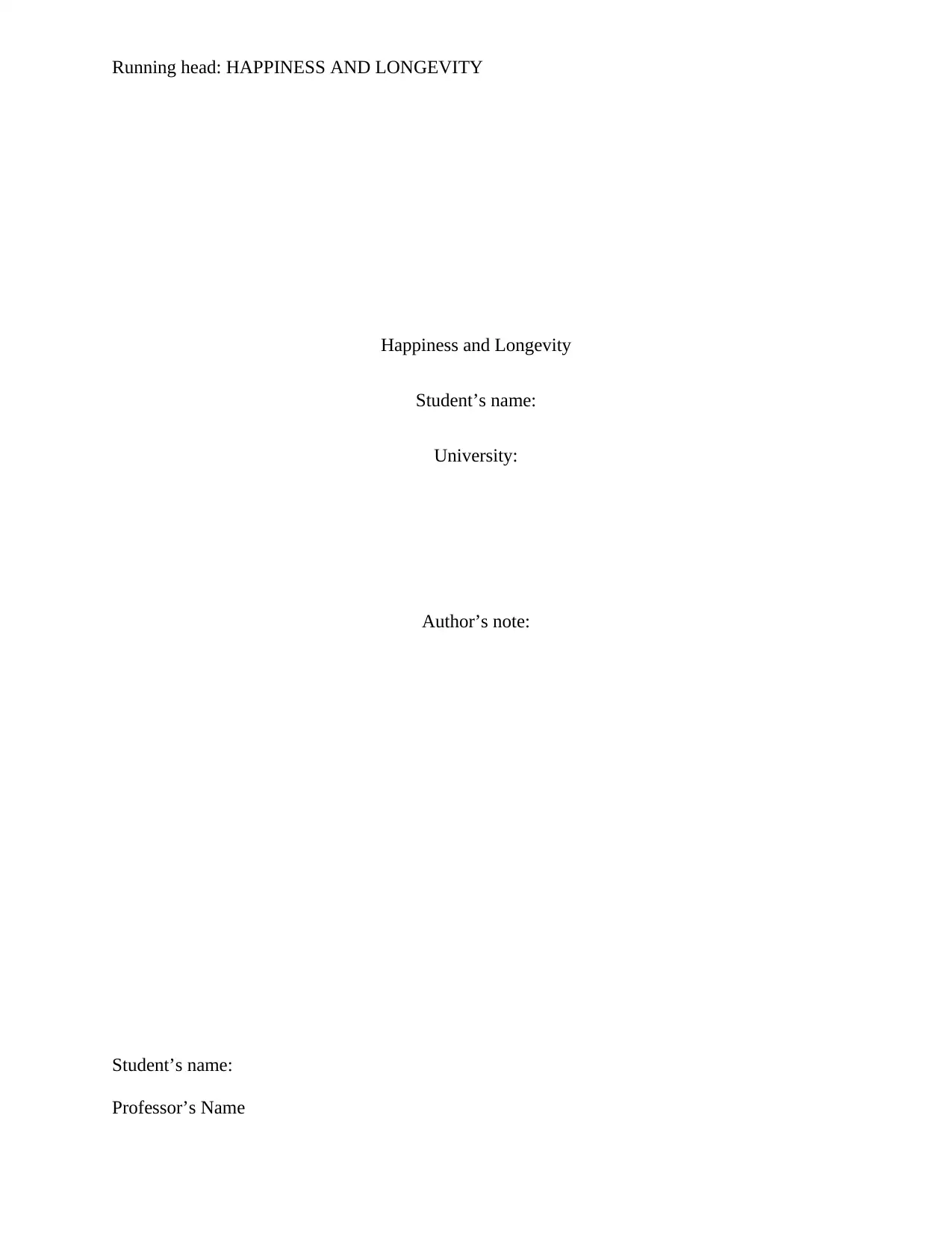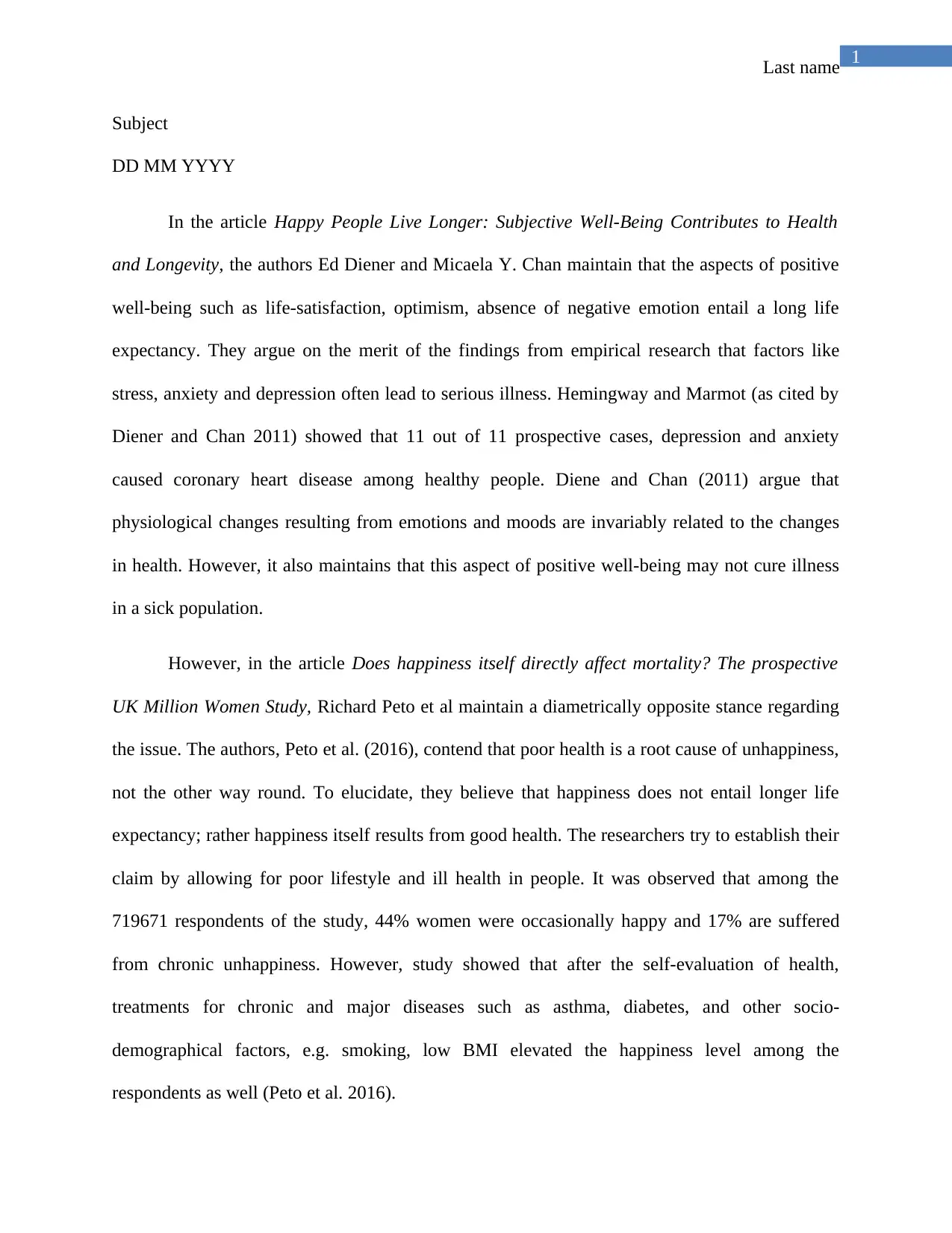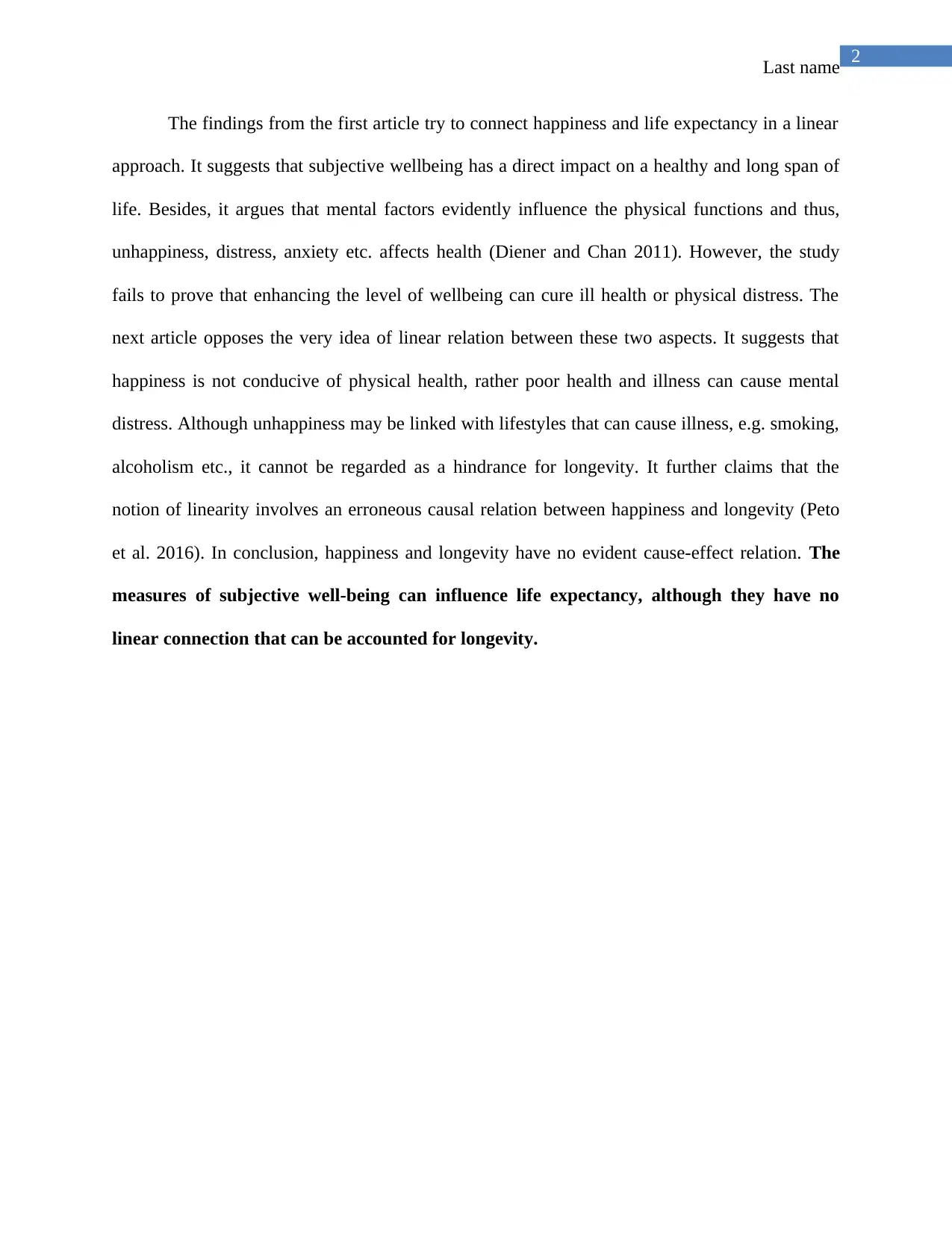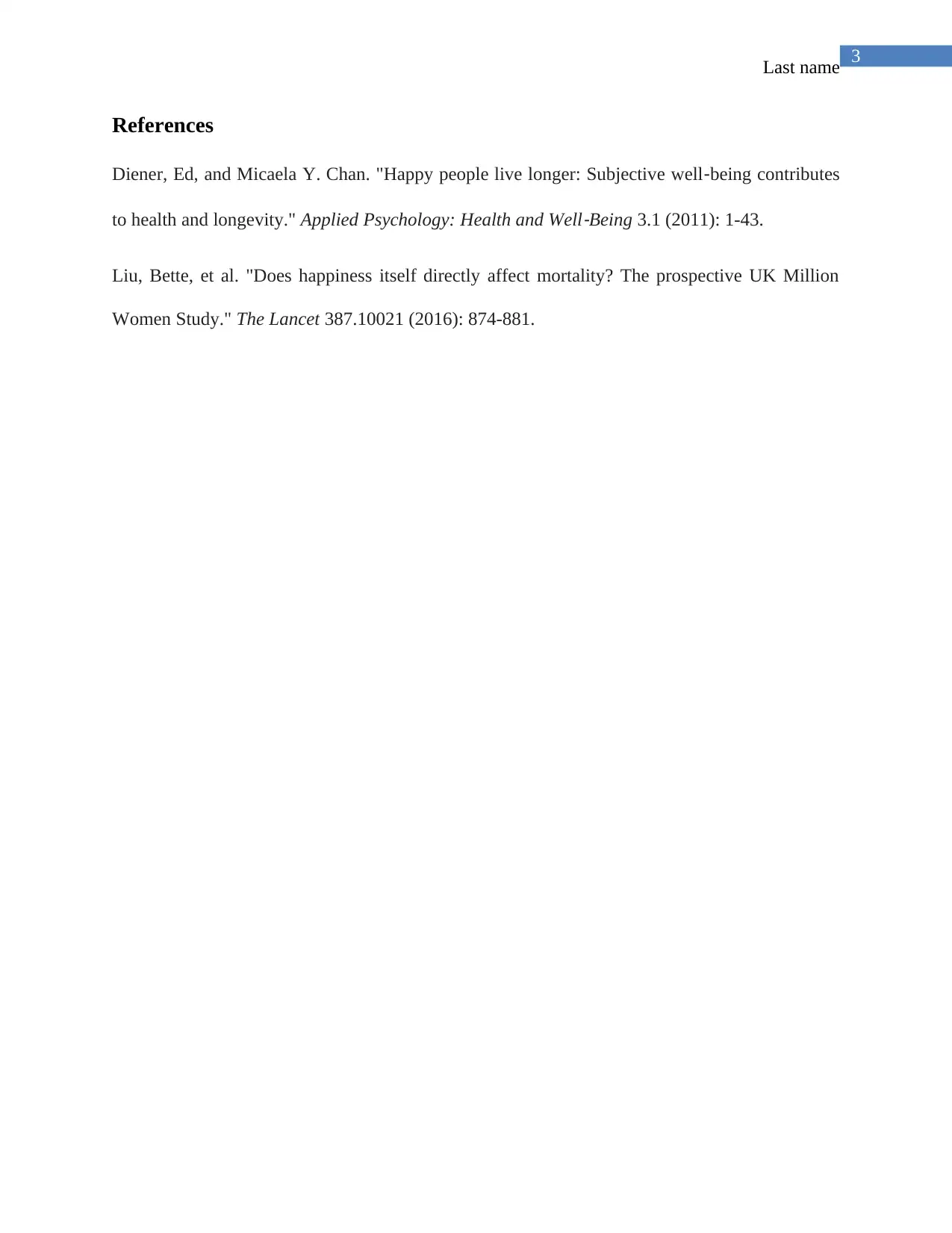Happiness and Longevity: A Report on Diener and Peto's Research
VerifiedAdded on 2022/10/02
|4
|647
|480
Report
AI Summary
This report critically analyzes two opposing viewpoints on the relationship between happiness and longevity. The first article, by Diener and Chan, argues that subjective well-being, including life satisfaction and optimism, directly contributes to a longer life expectancy, emphasizing the impact of mental factors on physical health. The second article, by Peto et al., counters this, suggesting that poor health is a cause of unhappiness, not the other way around. The report highlights the key arguments of each study, comparing their methodologies and findings. It discusses how Diener and Chan's research suggests a linear relationship between happiness and longevity, while Peto et al. challenges this notion, arguing that happiness may result from good health. The conclusion emphasizes that while subjective well-being can influence life expectancy, there is no clear cause-effect relationship. The report also briefly mentions the ancient perspectives on longevity and the value of Seneca's teachings in the context of modern life expectancy.
1 out of 4





![[object Object]](/_next/static/media/star-bottom.7253800d.svg)